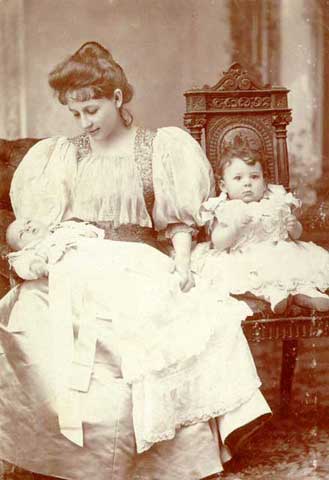Penelope Delta (Penelope Delta)

Penelope Delta moved to Frankfurt, Germany in 1906, when her husband went to run the offices of the Khoremis-Benakis cotton business there, and her first novel Gia tin Patrida (For the Sake of the Fatherland) was published in 1909. The novel is set in Byzantine times, and Delta started corresponding with the historian Gustave Schlumberger, a renowned specialist on the Byzantine Empire. Their continued interaction provided the material for her second novel, Ton Kairo tou Voulgaroktonou (In the Years of the Bulgar-Slayer), set during the reign of the Emperor Basil II. The Goudi Pronunciamento in 1909 inspired her third novel, Paramythi Horis Onoma (A Tale with No Name), published in 1911. In 1913 the Deltas returned to Alexandria yet again, and then in 1916 she settled permanently in Athens, where her father, Emmanuel Benakis, had been elected Mayor. While there, they became close friends with Eleftherios Venizelos, whom they entertained regularly at their opulent mansion in the northern suburb of Kifisia. Penelope’s father had been a political associate of Venizelos since his move to Athens in 1910, and had served as Finance Minister in the first Venizelos administration. Her long correspondence with Bishop Chrysanthos, Metropolitan of Trebizond, provided the material for her 1925 book, The Life of Christ. In 1925, she was diagnosed with polio. In 1927, she started writing the trilogy Romiopoules (Young Greek Girls), a thinly-veiled autobiography, which she did not finish until 1939. Set in Athens, the first part, To Xypnima (The Awakening) covers the events from 1895 to 1907, the second part H Lavra (The Heat) covers 1907 to 1909, and the final part, To Souroupo (The Dusk), covers 1914 to 1920. The political events of this tumultuous era are given first-hand treatment in this book, as she experienced them in the most personal level: her father was almost executed for treason by the Royalist Party, whereas Ion Dragoumis was actually assassinated by the Venizelos factions in 1920. Delta wore nothing but black after that.
In the meantime Penelope Delta published her three major novels: Trellantonis (Crazy Anthony; 1932), which detailed her mischievous elder brother’s Antonis Benakis childhood adventures in late 19th century Alexandria, Mangas (1935), which was about the not dissimilar adventures of the family’s fox terrier dog, and Ta Mystika tou Valtou (The Secrets of the Swamp; 1937), which was set around Giannitsa Lake in the early 20th century, when the Greek struggle for Macedonia was unfolding. While Penelope Delta got the credit for transcribing the memories of that war, the actual narratives were collected in 1932–1935 by her secretary Antigone Bellou Threpsiadi who was herself a daughter of a Macedonian fighter. She would famously forbid her grandchildren from visiting her during the day, when she was writing, but would then spend the entire evening with them, reading to them what she had written that day, in lieu of bedtime stories. During the last year of her life, and as her paralysis was advancing, Penelope Delta received the diaries and archives of her lost love, Ion Dragoumis, entrusted to her by his brother Philip. She managed to dictate 1000 pages of manuscripted comment on Dragoumis’ work, before deciding to take her own life. She committed suicide by taking poison on 27 April 1941, the very day Wehrmacht troops entered Athens. She died after several days on 2 May 1941. At her request she was interred in the garden of the stately Delta mansion in Kifissia. Chrysanthos, by then the Archbishop of Athens, officiated at the funeral. On her grave, in the garden of her house, the word σιωπή, siōpē (“silence”) was engraved.
Born
- January, 01, 1874
- Alexandria, Egypt
Died
- May, 02, 1941
- Athens, Greece
Cause of Death
- poisoning

